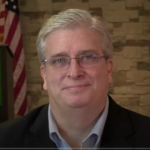The United States Supreme Court ruled today against six states that sought standing to sue sources of greenhouse gas emissions for their contributions to global warming under federal common law. The court ruled 8–0 in American Electric Power Co. v. Connecticut that the Clean Air Act and the Obama administration’s regulatory actions on climate had displaced the states’ common law “public nuisance” argument. The Court left one issue open, splitting 4–4 on the issue of whether federal courts even had jurisdiction to hear the claims.
The following statements from legal and environment policy experts at The Heartland Institute may be used with attribution. For more comments, refer to the contact information below.
“Today’s Supreme Court decision is a welcome development. At the same time, however, the decision is a reminder that environmental extremists still have many arrows in their quiver as they seek to impose their restrictions on economic growth through judicial and administrative bullying. We can only hope the Supreme Court will continue to block these attempted end runs around our elected legislators. It is also time for Congress to rein in the Environmental Protection Agency and its job-killing, environmentally pointless carbon dioxide restrictions.”
James M. Taylor
Senior Fellow for Environment Policy
The Heartland Institute
[email protected]
“The Supreme Court’s ruling today in the American Electric Power case dealt a major blow to efforts by states to use the courts to force industry, under the federal common law of public nuisance, to limit its greenhouse gas (GHG) emissions. The court reversed the Second Circuit Court of Appeals, which had ruled litigation could go forward even though the U.S. Environmental Protection Agency is in the midst of imposing emission limits.
“This ruling is welcome news for GHG emission sources, particularly large sources such as the electric power plants involved here, who are already facing EPA regulations of GHG next year, as EPA limits conventional air pollutants like mercury and microscopic particulate matter.
“The Court did not rule, though, on whether states could use state public nuisance laws to regulate such emissions in court. The Second Circuit was directed to consider this issue on remand.”
Maureen Martin
Senior Fellow for Legal Affairs
The Heartland Institute
[email protected]
The Heartland Institute is a 27-year-old national nonprofit organization with offices in Chicago and Washington, DC. Its mission is to discover, develop, and promote free-market solutions to social and economic problems. For more information, visit our Web site at http://www.heartland.org or call 312/377-4000.




